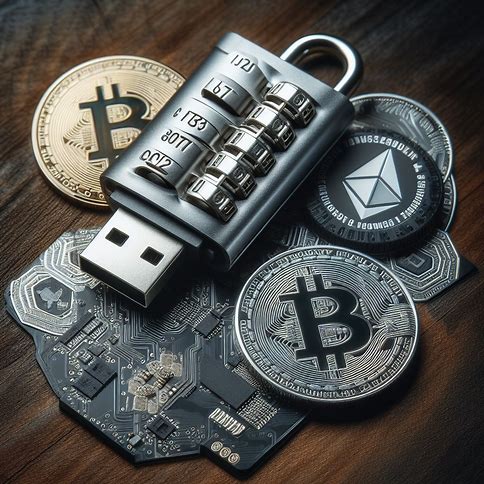With the increasing threat of cyber attacks and hacking in the crypto industry, there’s a need for cryptocurrency holders to be well-equipped with the necessary tools to protect their investments from hackers and fraudsters. This guide to protecting your cryptocurrency wallet will help you learn the best strategies for safeguarding your digital currencies from fraudsters and hackers.
The Importance of Crypto-Wallet Security
A cryptocurrency wallet isn’t just a storage mechanism for digital currencies; it is a way to access and interact with CEXs (centralized exchanges such as Binance and KuCoin) and DApps on a blockchain, so if malicious individuals gain access to your wallet, you may not only lose cryptocurrencies but also important personal information that can be used to blackmail you.
The need to prioritize the security of your wallet also becomes more important when we consider that the decentralized nature of cryptocurrencies means that users bear the full responsibility for their wallet’s security. Unlike traditional banking systems, there is no central authority to reverse unauthorized transactions or recover lost funds. This places a significant emphasis on preemptive measures to protect your digital assets.
Best Strategies for Secure Wallet Management
Here are some tips for securing your cryptocurrency wallets.
1. Using Strong and Unique Passwords
The first line of defense for any cryptocurrency wallet is a strong, unique password. Avoid common phrases or easily guessable information. Using a combination of letters, numbers and special characters will significantly enhance password strength. Additionally, if you have more than one wallet, then each wallet or exchange account should have a unique password to prevent a single point of failure.
2. Two-Factor Authentication (2FA)
Two-factor authentication helps you add an extra layer of security by requiring a second form of verification beyond just the password. This could be a text message code, an email, or an authentication app. This security measure is very helpful because enabling 2FA on all accounts related to cryptocurrency transactions will reduce the risk of unauthorized access.
3. Using Multi-Signature Wallets
Multi-signature wallets require more than one private key to authorize a transaction. This feature is particularly useful for businesses or groups managing a shared fund, as it ensures that no single person can move funds unilaterally. For individual users, it can also add an additional layer of security.
4. Keeping Software Up-to-Date
Regularly updating wallet software has been proven to help protect against some known vulnerabilities because developers continuously work to identify and fix security flaws, so keeping your wallet software up-to-date ensures you benefit from these fixes.
5. Recognizing and Avoiding Phishing Attacks
Here’s another important strategy for protecting your cryptocurrency wallet: Learning about phishing attacks and how to avoid them.
Phishing attacks, where malicious parties attempt to trick individuals into revealing sensitive information, are common in the crypto space. Always verify the authenticity of websites and communications and never disclose your private keys or recovery phrases.
6. Using Cold Wallets
Unlike hot wallets, which are vulnerable to online security risks, cold wallets, such as hardware wallets or paper wallets, store your private keys offline, making them immune to online hacking attempts. While they may be less convenient for frequent transactions, they provide the highest level of security for the long-term storage of digital assets.
But if you’re concerned about convenience, don’t worry. Hardware wallets are a type of cold wallet that balances both security and convenience. These wallets are physical devices that securely store private keys, never exposing them to an internet-connected computer. They can provide a secure yet relatively convenient way to access and manage your cryptocurrencies.
7. Having Recovery Plans and Backup Strategies
Having a recovery plan in the event of loss or failure is important, even with stringent security measures. This includes backing up your wallet’s recovery phrase, a unique set of words that can restore your wallet on a new device if necessary. Make sure these backups are stored securely in multiple physical locations to safeguard against theft, damage, or loss.
Related: 9 Common Network Security Threats in Cryptocurrency
Key Takeaways
1. Wallet Types and Their Security: Understand the difference between hot and cold wallets. Hot wallets offer convenience but are more vulnerable to online threats, while cold wallets provide the highest security for storing digital assets offline.
2. Strong Password Practices: Always use strong, unique passwords for each cryptocurrency wallet or related account, incorporating a mix of letters, numbers and special characters.
3. Two-Factor Authentication (2FA): Enable 2FA on all cryptocurrency-related accounts to add an extra layer of security, making it harder for unauthorized users to gain access.
4. Multi-Signature Wallets: Consider using multi-signature wallets for additional security, especially for group or business accounts requiring multiple approvals for transactions.
5. Software Updates: Regularly update your wallet software to protect against known vulnerabilities and benefit from the latest security enhancements.
6. Phishing Awareness: Stay vigilant about phishing attempts. Verify the authenticity of websites and communications and never disclose private keys or recovery phrases.
7. Cold Wallets for Long-Term Storage and More Security: Use cold wallets like hardware or paper wallets for the most secure long-term storage of cryptocurrencies, keeping private keys offline.
8. Backup and Recovery Plans: Maintain a secure backup of your wallet’s recovery phrase in multiple physical locations to ensure access to your assets in case of device failure, loss, or theft.
Frequently Asked Questions (FAQs)
1. What is a cold wallet, and why is it considered more secure?
A cold wallet refers to a cryptocurrency wallet that is not connected to the internet, such as a hardware wallet or a paper wallet. It is considered more secure because it is immune to online hacking attempts, protecting your private keys from unauthorized access.
2. Can I recover my cryptocurrency if my wallet is hacked or lost?
Recovery is possible if you have securely backed up your wallet’s recovery phrase, which can be used to restore access to your funds on a new device. Without this backup, recovering funds from a lost or hacked wallet is impossible.
3. How often should I update my wallet software?
You should update your wallet software as soon as updates are available. Regular updates include security patches and enhancements that protect your wallet from known vulnerabilities.
4. What are the best ways to create a strong password for my cryptocurrency wallet?
A strong password should be long, unique and include a mix of uppercase and lowercase letters, numbers and special characters. Avoid using easily guessable information, such as common words, phrases, or personal information.











1 comment